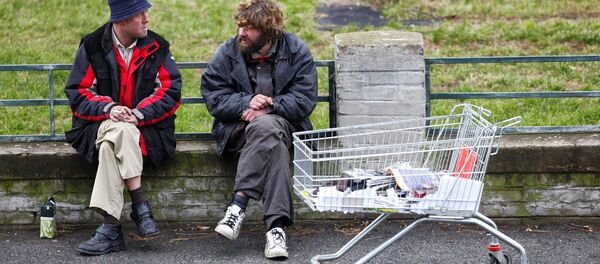Sputnik discussed this with Fulvio Scaglione, an independent Italian journalist and writer.
Fulvio Scaglione: What I know is that this is a very general problem in Europe. There are two reasons for that: the first one is the general phenomenon which sees the middle class and the poor people in Europe getting poor and poorer. This is a very widespread phenomenon. We can see demonstrations; just take a look at what is happening in France, or in Italy and so forth.
Sputnik: Reportedly, about 4,000 Euro-migrants make a living by begging in Sweden. What's the situation with the begging problem in Italy? You've mentioned one case before, but what is the problem in general?
READ MORE: Beggars Banquet: Panhandler With Millions in Cash Pinched in Swedish Paradox
The border between disturbing or not disturbing is very thin; you can be disturbed by a man who asks you for your money when you get out of a café or when you get into a shop. So, it depends. I know that in Switzerland, too, they adopted some ban against begging. But, as I said before, this is a European phenomenon; and in many Western European countries, they are trying to do something. But it's not easy.
Sputnik: The mayors of Italy's Salò and Venice have also banned begging, but the law still hasn't been adopted at the state level. In your view, what could the main reason behind this be?
Sputnik: How likely is it that the law could be adopted in Italy or Sweden, or in other European countries, as it has been done in Denmark and Norway, for example?
Fulvio Scaglione: Of course, we have this new government which is, so to say, very keen to stop migration, and not very keen to accept migrants or more migrants. But the public opinion is something different; and a ban against beggars could be not very well accepted by the public opinion.
READ MORE: New Swedish Anti-Migrant Party: 'At Least' Hundreds of Thousands Will Have to Go
So, I doubt very much that in Italy someday we'll have a law like the law they adopted in Denmark or Norway.
The views expressed in this article are solely those of Fulvio Scaglione and do not necessarily reflect the official position of Sputnik.




